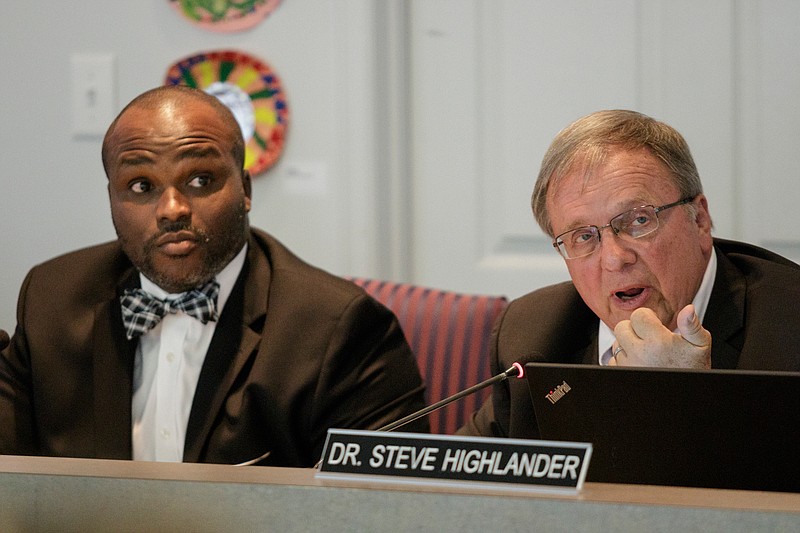Hamilton County Schools might soon have a new process for dealing with convicted felons or student discipline issues, after the board introduced updated policies at its meeting Thursday.
First readings of new policies including who has to undergo a background check when working or volunteering for the district, how chronic absenteeism is handled, and whether the district can enter into a non-disclosure agreement (it can't) were discussed.
Previously, it was the school district's policy for potential employees to undergo a background check, and if they had been convicted of a felony in the past five years they would be automatically disqualified.
But according to board attorney Scott Bennett, "not all felonies are created equal."
He encouraged the board, which now requires even volunteers to undergo a background check, to re-examine the language it uses in regard to felony convictions.
"Your current board language said that if it's an event that relates to moral turpitude, it's an automatic [disqualifier]," Bennett said. "We aren't trying to open up the door to create more problems, we're just trying to open up the door for further discussion."
Current policy leaves it up to the superintendent's discretion whether to accept applicants convicted of felonies more than five years previously.
The board's crackdown on policy comes in part due to new laws effective July 1 on policies that changed throughout the school board, but also thanks to efforts spearheaded by District 2 board member Kathy Lennon.
With the departure of Lee McDade, the district's former chief of operations who retired at the end of the school year, Lennon is taking a closer look at how and when policies would be reviewed.
Notably, there was little discussion Thursday night about the board's evaluation of Superintendent Bryan Johnson's performance during his first year leading the district.
The evaluations, which were publicly released last week, included each of the nine board members' takes on Johnson's tenure, an executive summary and a self-appraisal by Johnson.
Board Chairman Steve Highlander, of District 9, noted that each board member took the process very seriously, however there was little comment outside of Johnson's acknowledgement of the process.
"What I want to make sure I do for the 45,000 students and the 6,000 employees, is what I can do to be better. I thank you for the process and it's a great opportunity for me to learn and grow," Johnson said.
He received relatively high ratings from his board members - with an average overall score of 3.68 out of 5 - with praise in areas such as board communication and focus on post-secondary and workforce development opportunities for students.
District 1 board member Rhonda Thurman raised a concern about a calendar discrepancy, but did not address her other evaluation comments, despite giving the superintendent a 2.06 out of 5, the lowest rating from all board members.
Though not an official policy discussion, the board also discussed how students with disabilities have been served historically by the district. Representatives from the Chattanooga Inclusive Education Working Group, including Cale Horne and Garfield Adams, the district's exceptional education director, presented the board with a three-year plan for inclusion, ensuring students with disabilities receive the services they need and that are required by law.
The plan, which was commissioned with board approval after years of work, is the product of combined efforts from a variety of local agencies and support groups for individuals with disabilities, their families and caregivers.
"On many measures of data self-reported to the state on inclusion, we have historically been in the bottom 10 percent of the state, and that's simply unacceptable," Horne, a faculty member at Covenant College and a parent of a child with disabilities, said.
Of inclusion, and the research behind the practice, "not only is it the law, as it has been since at least 1990, it actually works," he said.
The district's three-year plan focuses on ensuring students are able to attend their zoned schools, have supported transition plans for life after they leave the school district, and how to ensure educators are prepared for working with children with disabilities.
For more on the district's three-year plan for special education, check out the Sunday edition of the Times Free Press.
Contact staff writer Meghan Mangrum at mmangrum@timesfreepress.com or 423-757-6592. Follow her on Twitter @memangrum.
